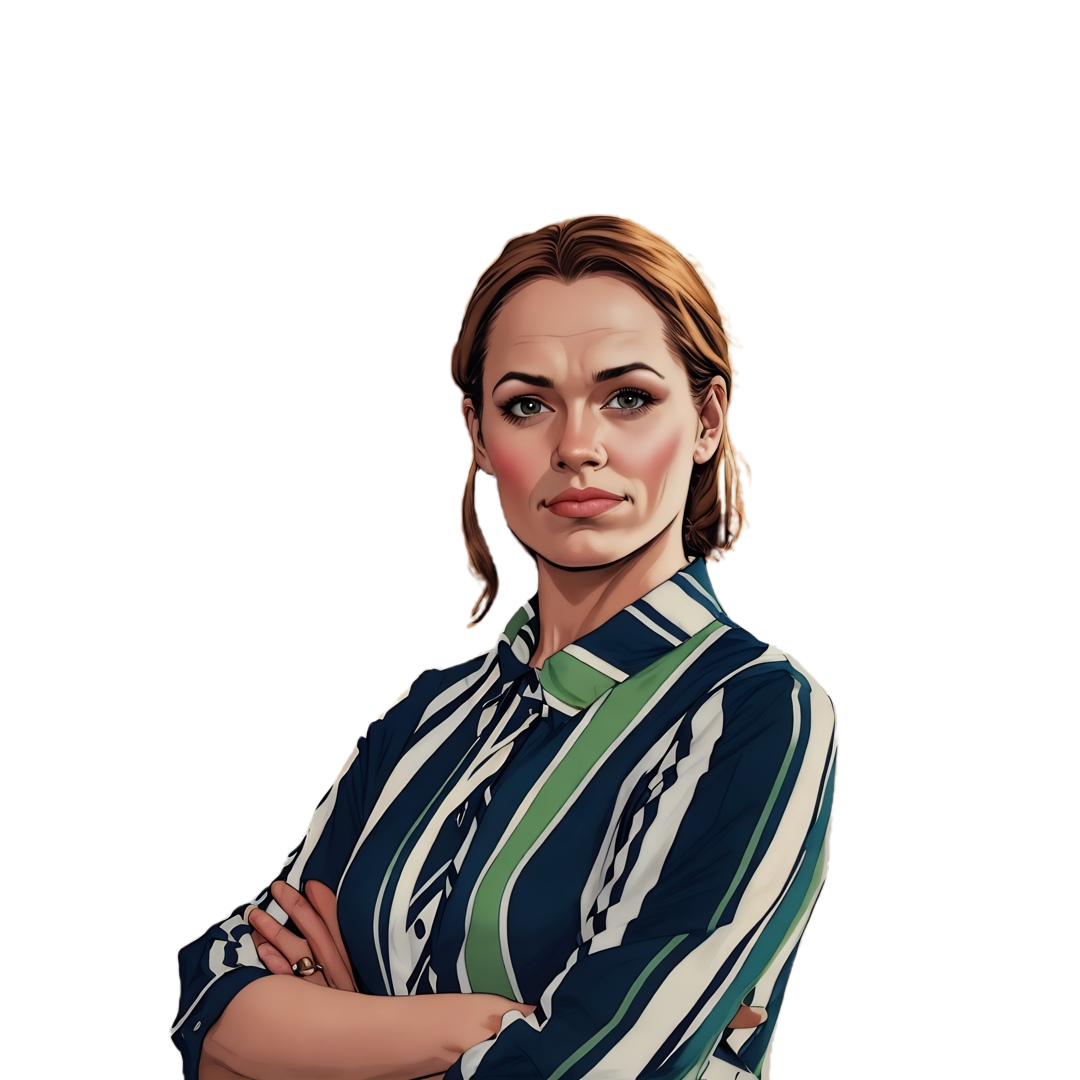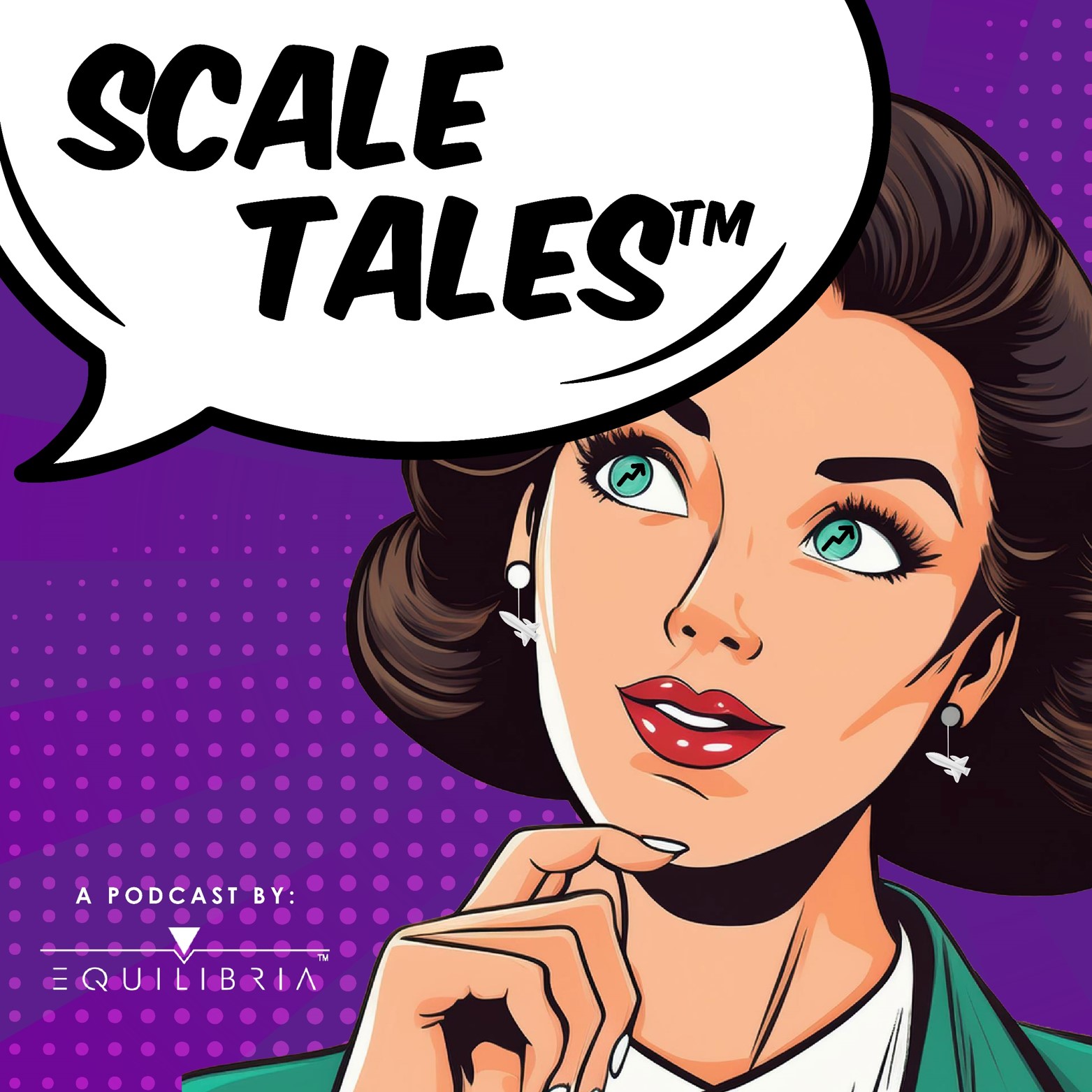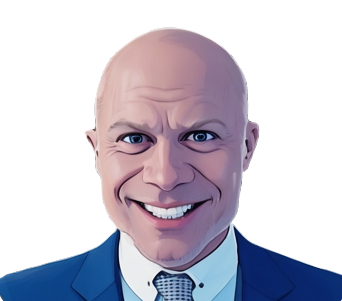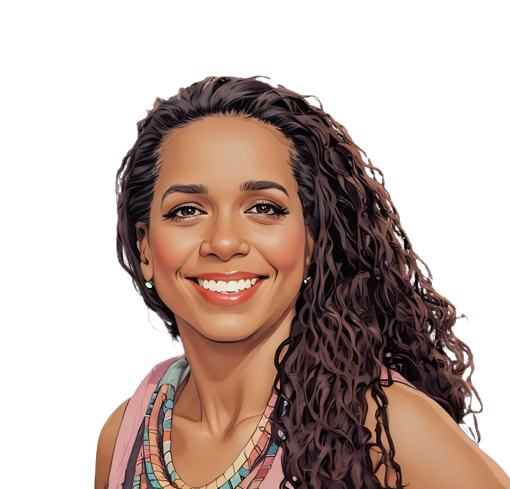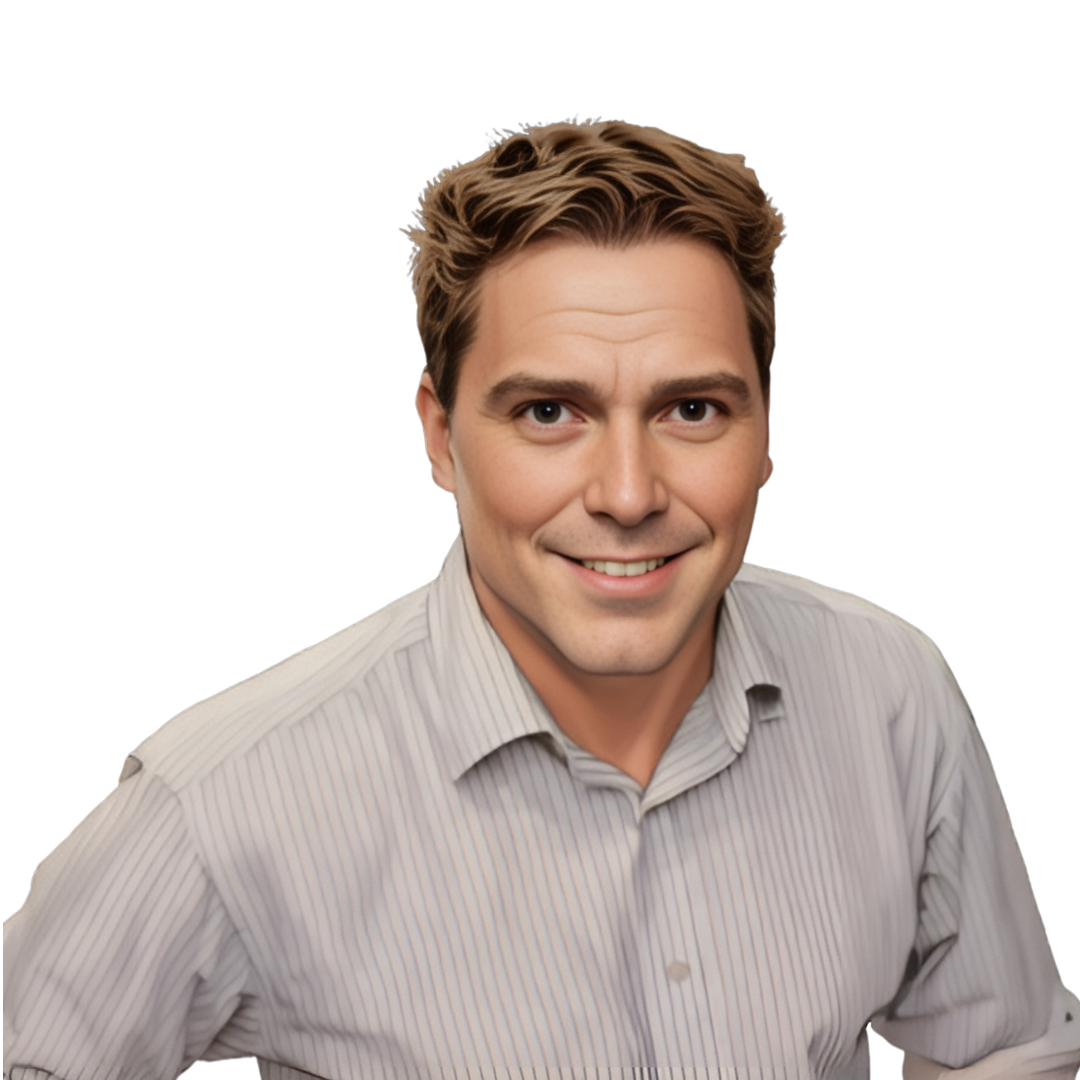Transcript
This episode is brought to you by Equilibria, Inc. Equilibria provides training to assist fast-growing companies in documenting and improving their key processes for maximum operational performance. Visit EQBsystems.com to stop the chaos of fast growth and start flowing today!

Welcome to Scale Tales – the business storytelling podcast where entrepreneurs, executives and experts share firsthand accounts of those magical moments when they achieved something bigger than even they could have imagined.
I’m Alicia Butler Pierre and I’ll be your guide during our next tale. It comes from someone I’ve had the pleasure of getting to know and whose children I absolutely adore. She and I are like kindred spirits in a way. Although I’m in the U.S. and she’s across the pond in the U.K., we’re both women who love the color green, we both studied and practiced engineering in highly competitive, male-dominated industries, and we’ve since converted our knowledge and expertise into empowerment-driven businesses. The work she’s doing is, well, simply…STEMazing!
This is Ep. 19: How Alex Knight Paved the Way for STEM Education Through 150,000 Engagements in Four Years
I’m Alex Knight, founder and CEO of STEMAZING. I’m currently in Northumberland in the north of England in the UK and this is my scale tale.
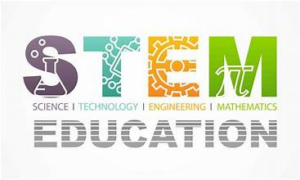
It started on the 19th of November 2019. That’s the date when I established my business. It’s amazing, for the first time I went on Company’s House, as you have to do in the UK, and googled “amazing” whether there was a company that existed with that name already. And I had previously had some other names in mind. I just wanted it to be something to do with STEM.
For those who don’t know, that’s Science, Technology, Engineering and Math and something that was a bit different from the usual serious, a bit elitist, overly sort of, boring and seen as something that’s just a bit of a hard technical field. I wanted the word, the name of the company, the vibe, the very essence of it, to feel like it was fun and not taking itself too seriously and just something that people could really connect and relate to. So I had some ideas like, “STEMtastic”. And then my husband just went,
“What about STEMAZING?”
And I went, Yes, I love that name, STEMAZING! So I went on HMRC Company’s House to see if STEMAZING existed. It didn’t. And that was where it all began, the name. You know, actually when you establish your company for the first time and you actually register it as a entity, it makes it real. And that for me was a big step because my scale tale certainly started then, but I actually had been thinking and dreaming about setting up my own STEM inspiration business for probably, if I’m honest, like 10 years previously to that, but it just never felt like the right time. There was always some other thing I was focusing on.
There was always some excuse why I didn’t think it would work, or it wasn’t a good enough idea, or it wouldn’t make any money. And so just kept putting it off and telling myself, it’s kind of a pipe dream, it won’t actually happen. This was pre-COVID, so it wasn’t like we knew COVID was going to happen. But something in me just went, Today is the day. And I just registered the company name. I didn’t think I’d really do much with it, but of course, once you start that journey, then it puts the wheels in motion. And that is one thing I’ve learned along the way, is that you just have to start and then the next step will follow. And you don’t even need to know what the next five steps are.
You just need to take that first step and then the next right step will come along. And it really just grew from my passion of wanting to make a difference around gender representation in STEM and particularly engineering. I’m a mechanical engineer. I worked in engineering industry for over 15 years before I founded STEMAZING. It was about 18 years, I’d worked across a range of different industries, from biomedical engineering to a bit in defense, aerospace, infrastructure, data analytics. I honestly did love my job. I was doing really, really interesting things and that’s what kept me in there. And I felt like I was doing things that were important and making a difference.
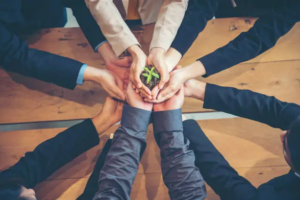
But I’ve always had this desire to have more of an impact around equity and inclusion, and diversity is a big part of that. And I suppose my experience from being an engineer, being in the minority as a female in engineering, helped me see that a way that I could apply my passion for equity and inclusion was through helping to make our STEM workplaces more diverse and inclusive for everyone, not just women. But I wasn’t quite sure how to do that. I did lots of voluntary things throughout my career and I sort of tried to integrate that role into my job in lots of ways, but it never quite felt right.
It just wasn’t enough. I was always searching for more. I do have an entrepreneurial spirit in me. And I am the kind of person that as I’ve grown up, I’ve realized I like to write my own rules. I like to be the one deciding where that creative energy goes and how hard I can push without anybody else’s expectations or limitations on me. So, that was definitely brewing away inside of me. And then underneath that in another layer was a deep-rooted need from my early childhood for equity and inclusion.
I was in a very bad car accident when I was very young.
My sister ended up getting a severe brain injury and suffered pretty badly from that. And she ended up having multiple disabilities. I grew up seeing my only sister, somebody I care deeply about, struggling with life in so many ways and my parents doing their best to help and me kind of as the big sister, feeling a sense of responsibility, but lack of agency, lack of the tools or know how to really make a difference and just kind of helplessly observing this situation unfold around me and feeling like the best thing I could do to help was just stay out of the way, just be a good little girl, stay quiet, not be any trouble for anyone, not need any attention, not take up the limelight.
This experience fundamentally changed everyone in Alex’s family. One major way it changed Alex involved the way she socially showed up in the world.
I created this version of reality for me, which was I’m just better off staying quiet, being practically invisible, basically making sure that everyone else gets what they need, really a people pleaser and trying to just follow everybody else’s rules, even if they were unsaid rules. So I suppose all of that culminating into creating like this perfect storm, if you like, of drive and intention, but also frustration and a feeling of slightly being stifled and not able to be who I felt I could be because other people’s needs were greater than mine but also experiences coming together to create the ingredients that meant I was always going to ultimately set up my own business around inspiration, inclusion.
The fact that it was related to engineering was perfect. I was an engineer, and I think reflecting back, I’d gone into engineering because I wanted to do something helpful for people. So my drive and my focus has always been around doing something positive in the world to help people. And that’s exactly what STEMAZING does. STEMAZING is a nonprofit social enterprise and it’s about helping empower women and non-binary people in STEM to be more confident, visible role models so that they can then go on and inspire the next generation and young children into potentially a future in STEM, if that’s what they want.
Open their eyes to the possibility that this could be for them. Certainly in the UK we have a huge diversity crisis in STEM industries with only having 16% women in engineering. And we all know that diversity breeds innovation, diversity improves business performance, diversity helps your bottom-line diverse teams outperform those that are not in every way.
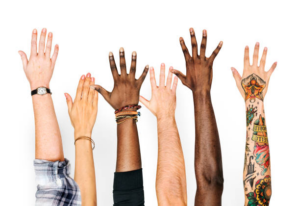
It’s just good business sense. But we’re missing out in engineering particularly and STEM more broadly. So there’s a clear need for what I’m doing. But my business comes at it really from the people angle of empowerment for women and helping raise those diverse voices to be more vocal and those diverse people to be more visible and then equip them with the tools they need to go into primary schools. In the UK, we tend to work with children aged seven to nine and run practical, hands on, really fun, engaging STEM activities, all connecting very basic science and engineering principles to real life.
So you can see how these things they’re learning at school in science and math and technology and even geography and history and how it’s all connected and related and the arts and how it can be combined with STEM to make a difference in the world. And that’s what we want to really inspire in young people, is our values around curiosity, creativity and courage so that we help nurture and develop future citizens, future human beings who are problem solvers and innovators and care about the world and what difference they can make in it. But really importantly, have the agency to do something about it.
This is particularly important to Alex because, as she mentioned earlier, she grew up with a severe deficit in confidence and agency.
I think that’s what makes me so passionate now about ensuring that everyone, any age, any gender, feel that they, as an individual, have agency and have the power to make a positive difference. And this all comes down to role modeling for me and feeling like you are a role model and owning that title of role model. And what I think is very important that we all recognize, and we try and get this message across in STEMAZING, is that everybody is a role model, whether you like it or not.
Actually, by default, we are all role modeling to each other all the time. That’s how humans learn. They get influenced by other people’s behaviors. You learn from people around you. The important thing is recognizing that you are a role model and then using that platform and privilege and power to do something with it. I always knew I had this desire to kind of encapsulate all of that good stuff into a business, and into something that I could do and I could lead with my own passions and purpose. Being in the minority in engineering, I wasn’t sure how to actually turn that into something that was a viable business that would make money, that could pay me.
Before I started STEMAZING, I was working as a technical director in a engineering consultancy in London. I was earning pretty good money. And, we had a good lifestyle. We lived in a nice house. I had a nanny who used to look after my children for me while I was at work. When they weren’t at school, we’d go on lovely holidays, skiing holidays. We had everything we needed.
And I made the difficult decision to leave that behind, that financial security and go it alone. I had to feel like this is going to bring me some money. I don’t need as much money. We can make cutbacks and that is definitely something I did and, and did for quite a while in the early sort of year or two of scaling from nothing up to something.
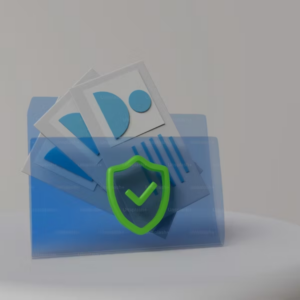
There’s comfort in things that are familiar to you. For anyone who has ever left a job to pursue a business full-time, then you know all too well that the decision to venture into the unknown, with your family in tow, is…scary.
The first year I didn’t pay myself, but I had faith that I was onto something and other people and other businesses would value what I was offering because through all my experience in the sector, I hadn’t seen anything that was doing exactly what I wanted to do, which was that combination of empowerment for women plus inspiration for young people. And I felt like that is a niche, that is something that is needed. And from initial conversations I’d had with some people, I felt like it would be valued and would be something they would benefit from being a part of.
But you never know until you actually do it and you actually get paid for the first time by someone. So it is a nerve wracking time. But I think my experiences from my childhood through to my early adulthood, the trauma that I had been through physically in car accidents myself, but also mentally, emotionally, growing up in quite a high stress household, meant I built a lot of resilience. And so, I kind of felt like even if this doesn’t work out, I’ll be glad that I tried.
And to be honest, I really have quite a lot of faith in myself that I am a fierce problem solver and fighter and once I’m passionate about something and have this kind of fire in me to do something about it, generally I find a way. I’m resourceful and resilient. I think that’s kind of some key traits that when you are pivoting and starting something new, you need to dig deep into your resilience and your resourcefulness and it will pay off.
And it’s that resilience and resourcefulness that sustained Alex throughout that first year of STEMAZING because something happened just a few months after she started. The world literally went on lockdown because of COVID-19. This was yet another event that stood to also forever change Alex and how she shows up in the world.
It was a scary time for many, many reasons. And at the time, I think probably like everyone else, I was just focused on getting through each day, not really knowing what would happen next. I had two quite young children and I was homeschooling them.
My husband and I were trying to balance that together and it was a tough time, but I have to say, always trying to look for the gift and opportunity in something. Where I had only just started my business reaching out to people to see if they wanted me to mentor them and be paid to mentor them. Started doing STEMAZING kids activities in local schools as an after school club. And families would pay for that. I’d only just started that really.
Thankfully, it did not take Alex long to recognize the gift and opportunity that the COVID pandemic presented.
One of the biggest opportunities was to pivot the services I was offering. Instead of face to face, which I had really only thought they would be really effective and doable face to face, I tried it online. So I was doing some mentoring online and I was doing STEMAZING kids activities and experiments for families online. And what I realized was it took a little while, I’d say probably like maybe two months for me to spread the word, sort of adapt my style and exactly what I was doing with this amazing kids’ activities. But then it seemed to be word of mouth.
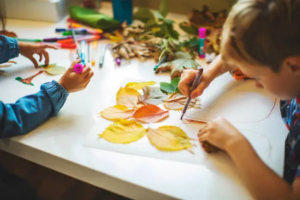
I wasn’t particularly great at social media or marketing this, but families were contacting me asking if their children could take part in our online STEMAZING kids club. And where I’d maybe gone from seeing about eight families at a time in an after-school club in person, all of a sudden I was reaching over 100 families online doing some amazing kids activities. And once I’d worked out how I needed to tweak them and simplify them and really modify my delivery style as well, so that every child who was on the other side of the screen could actually take part in the activities, follow along and learn something, and have fun with it.
Then the online method was really a game changer for me. So that was a gift that came out of that very difficult time. And then I carried that on and kind of used that inspiration from that experience to pivot again what I was going to do with STEMAZING was forced to move everything and keep everything online. But then even when restrictions started lessening and we could go out and see each other, I kept the offerings online because actually that worked better. I could see more people and therefore I could get more income from the families for this amazing kids club online.
And this was the start of Alex being able to scale the role-modeling and reach of STEMAZING. And once she committed to delivering online activities for kids, every aspect of STEMAZING skyrocketed. Coming up after the break, Alex will talk numbers. That is, she’ll share just how many lives have been impacted and how that scale happened
Some small businesses fail not from the lack of customers, but from too many. When your business receives positive publicity, it’s exciting! The spotlight attracts more customers and the cash flows in. But too much growth too soon can be catastrophic especially if your organization lacks the business infrastructure to support this growth.
Behind the Façade: How to Structure Company Operations for Sustainable Success is a book that introduces a proven framework for building business infrastructure. The book is structured into six relatable stories of entrepreneurs who apply this framework, giving you an inside look at how they solve their fast growth issues and how you can too! Pick up your copy today at ScaleTalesPodcast.com. ScaleTalesPodcast.com.
We’re back and before the break, mechanical engineer turned STEM role model and entrepreneur, Alex Knight, shared the scary beginnings of STEMAZING. This is the non-profit organization she started just a couple of months before the world shutdown due to COVID-19. However, being the resilient person she is, she quickly figured out a way to leverage digital technologies to grow and scale rapidly. How’d she do it? Well, it all started when Alex started crunching numbers…
One session, I could reach many, many more children online than I could in person. That was actually a really positive thing. And it inspired me to think, Well, if I’m doing this and, I’ve had to learn some different tools and techniques and things, but is pretty enjoyable and also not too difficult to do this. So if I can do it, anyone can do this! So that is really what inspired me to train other women who are in STEM to be able to deliver STEMAZING kids sessions, either online or in person.
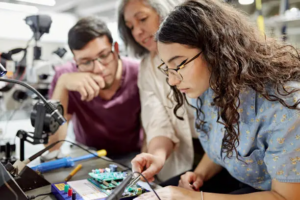
And so I created an online program, and that became one of our core offerings in STEMAZING to businesses that they would allow women in their organization to come on my program, learn to level up their confidence and public engagement skills, and grow their toolbox of STEM outreach activities they can do with ease, and actually deliver them to children, go through the safeguarding, all the risk assessments that I would help them to do, and then actually go and deliver these sessions to kids, which is great for companies. Social value, community, social responsibility, all the things that companies have to show they’re doing. And I just made this easy for them.
Plus helped the women in their companies right now increase their confidence, their kind of feelings and identity as a role model. All the things that we want women in STEM to do so that they are more visible and kind of push themselves forward for progression in their careers. So I took that sort of really difficult time and made it into actually one of our core service offerings. that’s actually what I do twice a year still. Years later, I’ve tweaked it over the years and adapted it and improved it. But now we run what we call our Inspiration Academy program online.
We run that three-month program twice a year. And now we have about 100 women every single year going through that program. And every single woman is reaching at least 30 children herself, running at least four STEMAZING kids sessions herself. And so every single woman is having at least 120 engagements doing STEMAZING kids activities, so that really scales up very, very quickly.
It’s evident that all of Alex’s hard is paying off and it led to yet another revelation.
By the end of 2020 and the start of 2021, I really had this strong sense of this program, the Inspiration Academy, is going to be our core backbone of what we do. And the other things like mentoring and mentor training and my speaking and other things that I was doing around the edges, they would be the additional things. But this Inspiration Academy is going to be the spine of what we do. And so, I put all my effort into that as I got women involved in it, they became almost like the sales force of my business.
I had some women whose companies paid for them to be on it. And then I just opened about half the places to any women in STEM that wanted to apply for free and they could get on this program for free. They just had to give me their time to do the program and commitment that they would deliver the sessions to schools. So I found out that as long as I could give these women a fantastic experience, then they would become the advocates for me.
Most of them worked in STEM organizations so they could go and say what a great experience they’d had, get their company to support it in future. And we actually grew the number of partners who were paying to be a part of STEMAZING. I’d say probably about 50% of the partners that we have had nothing to do with really doing a sales pitch to them. It’s been these women who have been the champions and are kind of just organic salesforce, who’ve gone out and created those opportunities for growth for us.
And when you start crunching the numbers, STEMAZING’s ability to scale becomes evident.
2021, which is when we started it, we’ve done eight rounds of the Inspiration Academy. And each year we managed to get at least 100 women through the program. Each cohort has at least 50 women, maybe a few more. Because to date now, at the back end of 2024, we’ve had almost 600 women go through our Inspiration Academy program.
Each woman also has to deliver at least four sessions to a class of 30 children. So it’s not just one engagement, it’s multiple engagements. And then what we find is once we inspire these women, give them the confidence and the tools to go and do this for themselves, and we say you now can keep using our STEMAZING kids IP if you like, the lesson plans, the resources, the templates, you can go and use that for more classes that you organize yourself.
And so a lot of women go on and do multiple classes either in their local primary school or other schools, or do it at like church groups or brownies or cubs and, you know, social youth groups. They then feedback to us how many children they’ve seen, how many sessions they’ve run. And when we collate all that data together, we’ve had over 150,000 STEMAZING kids engagements.
Wait, wait, wait. Before Alex continues, can we give her a round of applause?

So that means one child having an engagement with a woman role model doing a STEMAZING kids experiment. A lot of them do multiple ones. So we count each one as one engagement. And we’ve had over 150,000 now. And the more women we have and the more we encourage them to keep going and doing their own stuff, the more that is just going to absolutely accelerate and amplify exponentially. And that’s what I love about this, is that it’s nothing to do with me anymore, it has a life of its own.
I think that’s the key for me, I feel like that’s the key for any business really, is that you want it to almost create a life of its own and be more than just you who started it by getting other people so engaged and passionate about what you do or the service you provide or the product that you have that they become your sales force and they help you grow it because they love it. You’re not paying them. They do it out of pure love and passion for what you do. And I think that can be applied to any business.
There are some empowerment-focused businesses that are currently in danger. DEI or Diversity, Equity, and Inclusion, tends to ebb and flow especially depending on the political climate of certain countries.
In the UK there are incredible organizations that I know that are focused on gender equity and diversity that are going out of business. They cannot get the support they need to operate. It is a serious problem. The essence of the problem is still there, it’s still desperately needed and important. But we have to remember that we need to meet people where they’re at with the problem space. And what I’m finding is that there is more support around the idea of allyship and being in this together.
It’s not just about women for women. It’s about how do we all come together to benefit everyone. And of course that is what we ultimately want. Feminism is about equity for everyone. And it’s I think it is a marketing messaging issue that we have to be very clear on why we’re doing it and what the benefits are for the people getting involved and the people funding it. But I’m also quite fierce about the fact that I’m not apologetic that what I believe is the right thing is still that women need focused effort and support for them.
So I’m finding my allies, as it were, in businesses that believe in our mission and understand why it’s so important and getting them on board as champions, which means I’m not going to be able to get business from every single organization in STEM. And not everybody is going to appreciate and understand and want to get on board with our mission. But there are still the champions out there that believe what we’re doing is valuable and needed, and they’re the ones that I’m focusing my energy on, and I want in my corner with me now.
Who knows how that will change over the next year? Five years? I will always have to adapt and keep focusing on where am I adding the most value and where are we able to have the most impact. But it’s one of those things where I think you have to really dig deep into what do you care about. What are your personal values? What matters to you? Not be swayed too much by what other people think and say because that could change next week, next year. Remember what’s important to you and just think about your communication style and your messaging and essentially your business development approach so that you get as many people on board with your mission as possible.
And one way to get people on board with your mission is to be more of a giver than a receiver. So, to that extent, Alex has some additional resources and advice she’d like to share.
A fantastic podcast that I was listening to which supported me in the early days of creating STEMAZING, was a podcast called She Means Business. That was great and it gave me lots of tips and ideas. I also read lots of books. But my biggest piece of advice would be become part of a networking group of other startups and small businesses. You will learn so much from listening to other people’s real stories and their real experience.
I joined a networking group and I found myself a business mentor who helped me so much, really challenging my own self-limiting beliefs, helping me realize that this was not just a passion project, it was going to be a business and I needed it to actually make money and pay me. That was super helpful. And I still have that business mentor today and I have other mentors as well that help me in different aspects because I recognize like I have gaps around some of the financial things, accounting, legal side. So I find people that can give me advice and help me. You can read all the books and everything, but actually finding a person who can give you some tailored advice and challenge you is really invaluable.
That’s right. Don’t be afraid to have someone challenge you. It might be the key to unlocking your full potential. I can’t help but wonder if having a mentor is what led Alex to push beyond those self-limiting beliefs she spoke of and ultimately land her a nomination as an engineering role model by the esteemed Royal Academy of Engineering in the U.K. And in case you’re listening to this, and you’re inspired to get involved with STEMAZING, Alex has some tips for how you can do that.
We have the Inspiration Academy program, which is our core program. It’s online and it’s available for anyone with an Internet connection to apply to if you identify as a woman in STEM or a non-binary person in STEM. So wherever you are based anywhere in the world, you can sign up to be a part of our program.
We open places for free for any women in STEM to apply. If you want to be matched with a UK school for delivery, we can do that. But you’re also welcome to find your own local school in the country where you are in the village or town where you are and deliver our amazing kids sessions into your local school. Absolutely anyone can take part. Geography is not a barrier!
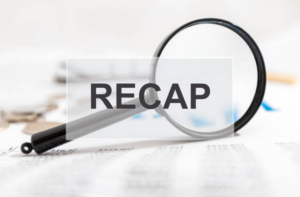
No geographical boundaries, a passion-driven salesforce, and a business model steeped in empowering those who otherwise may not have access to a STEM education seems to be part of the formula for STEMAZING’s success. Here are some other lessons learned from Alex:
- If you have an idea for a new product, service, business, job, and you’re still waiting for a nudge, inspiration, motivation, or whatever it is…take Alex’s advice and Just Get Started! Persistence beats perfection every time.
- Once you do get started, don’t be overly rigid. Be willing to pivot.
- There is a gift and opportunity in every obstacle if you are patient enough to have them revealed to you.
- Customer experience is king! Focus on your customers and watch how quickly you can build a team that attracts even more customers.
- Another great way to build a sales team is to empower them through well-defined and documented processes and a mission that they can understand and rally around.
- Everyone, yes everyone, is a role model, whether you like it or not. This reminds me of the fact that you never know who is watching you or listening to you. So, be the change you want to see.
- Seek mentorship. Mentors are important for giving you objective guidance and advice tailored just for you.
- Create a business model or project backed by solid documentation and performance metrics so that it can function without your daily presence. This means it can be replicated and yes, it can scale.
A special thank you to Alex for coming onto the show and sharing her scale tale. I mentioned earlier that I got to know Alex during our time preparing for and participating as fellow speakers at the 2024 TEDx Viikki event in Helsinki, Finland. It was there that I met Alex, her husband Josh, and their beautiful and bright-eyed children, Isaac and Penny.
Alex, I want to officially go on record and thank you from the bottom of my heart for helping me during the delivery of my TEDx Talk. I am forever grateful for the support you gave me as well as that big hug once I got off the stage.
As soon as Alex’s TEDx Talk on role modeling and mentoring becomes available, we will share it in this episode’s show notes. For now, if you’d like to learn more about STEMAZING or perhaps when the next cohort begins, you can visit ScaleTalesPodcast.com to access links to that information as well as their social media accounts. Again, that’s ScaleTalesPodcast.com.
Thank you for listening! If you learned something valuable from this episode, please leave us a five-star rating and review wherever you’re listening.
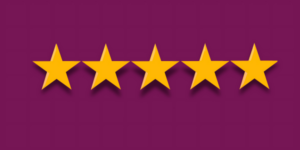
I’m Alicia Butler Pierre and I produced and narrated this episode. Audio editing by Olanrewaju Adeyemo. Music production and original score by Sabor! Music Enterprises. Video editing by Gladiola Films. Show notes by Hashim Tale.
You’ve been listening to Scale Tales, a podcast by Equilibria, Inc.












